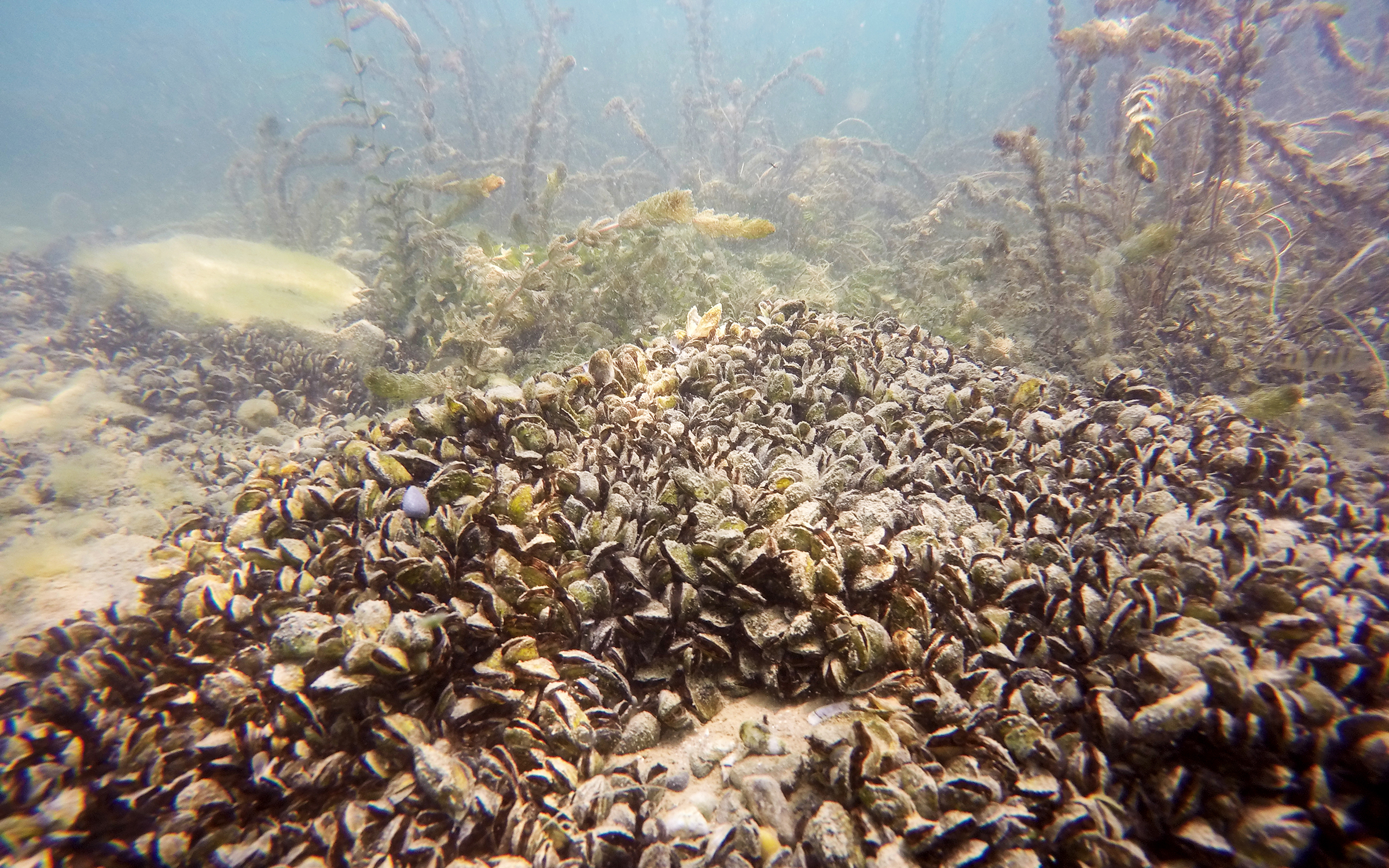
Study: quagga mussels to spread massively in Switzerland

A study comparing lakes in the United States and Switzerland shows that the invasive quagga mussel is spreading widely in both countries, following a similar trend.
The invasive quagga mussel, which is already present in numerous bodies of water in Switzerland, is expected to spread massively in Swiss lakes. The biomass per square metre in Lake Constance, Lake Geneva and Lake Biel is likely to increase by a factor of nine to 20 over the next 22 years, and the quagga mussel is likely to shift into the deeper parts of the lakes, the Swiss Federal Institute of Aquatic Science and Technology (Eawag) announced on Thursday.
+ Lake invaders: alien shellfish trouble Swiss waters
The quagga mussel (Dreissena rostriformis), which comes from the Black Sea, has been spreading in Swiss lakes and rivers for around ten years. It can cause significant damage to water infrastructure and ecosystems. While the quagga mussel was only detected in Switzerland in 2014, it has been spreading in North American lakes since the late 1980s.
+ Invasive quagga mussel could profoundly change Swiss lakes
Researchers from the University of Konstanz and Eawag compared data from the start of the spread in four of the five Great Lakes in North America (Huron, Ontario, Michigan and Erie) with statistics from lakes Constance, Geneva and Biel in Switzerland. They found that the spread patterns largely match.
In lakes that have already been infested, the dynamics can no longer be stopped due to the mussel’s invasiveness, say the researchers. But it is possible to design infrastructure in such a way that the mussels and their larvae do not penetrate.
The findings are also a warning for lakes in which the quagga mussel has not yet been found, such as Lake Zurich and Lake Lucerne. The researchers stressed that with appropriate measures, such as compulsory cleaning of boats and targeted information campaigns, the spread to new waters could be prevented.
This news story has been written and carefully fact-checked by an external editorial team. At SWI swissinfo.ch we select the most relevant news for an international audience and use automatic translation tools such as DeepL to translate it into English. Providing you with automatically translated news gives us the time to write more in-depth articles. You can find them here.
If you want to know more about how we work, have a look here, and if you have feedback on this news story please write to english@swissinfo.ch.

In compliance with the JTI standards
More: SWI swissinfo.ch certified by the Journalism Trust Initiative





























You can find an overview of ongoing debates with our journalists here . Please join us!
If you want to start a conversation about a topic raised in this article or want to report factual errors, email us at english@swissinfo.ch.